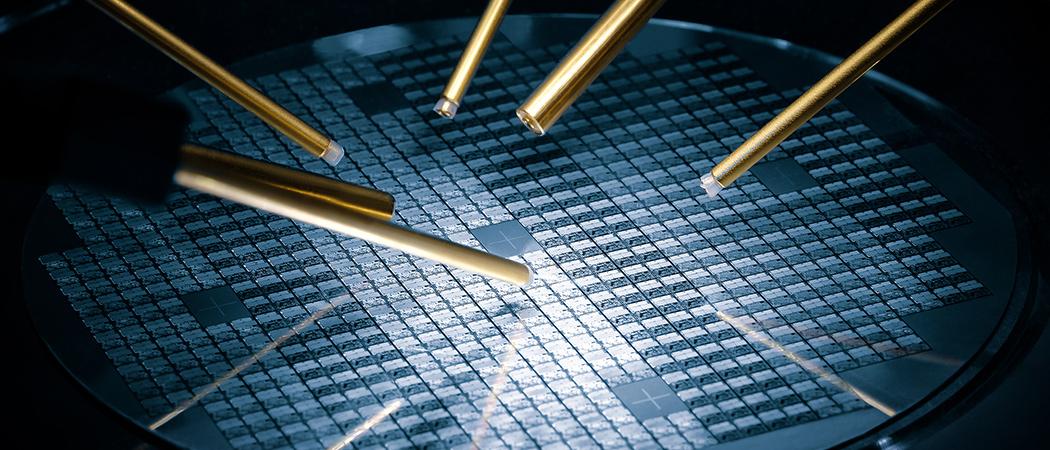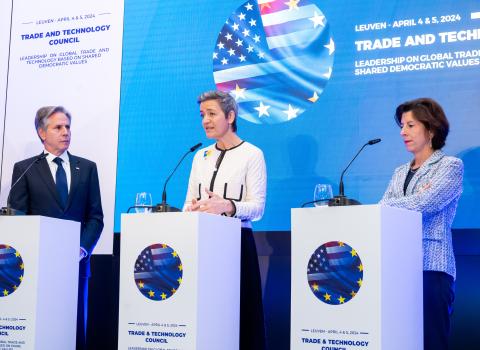Chips for Europe initiative would help prevent semiconductor shortages and make the EU less dependent on technologies from China

The EU has announced Chips for Europe, an €11 billion R&D partnership to boost research, development and manufacturing of microprocessors.
The initiative forms part of a Chips Act that aims for the EU control one fifth of the world market by value by the end of the decade. The Commission estimates the EU will have to multiply annual sales of microprocessors by a factor of five to achieve that target.
“The Chips for Europe Initiative is closely linked to Horizon Europe and will rely on continuous research and innovation to develop the next generation of smaller and more energy-efficient chips,” said Mariya Gabriel, EU commissioner for research and innovation.
The plan, first announced by Commission president Ursula von der Leyen in her state of the union speech last September, is a response to the world shortage of microchips that saw manufacturers across the EU slowing down the production of cars and other goods.
France, the current holder of the rotating presidency of the Council of the EU, is trying to convince member states to sign up to a new model for economic growth which is less reliant on technologies coming from China and the US.
Speaking at a French presidency conference on Monday, the day before the announcement of the chips act, Commission vice president Věra Jourová said the COVID-19 pandemic has prompted the EU to rethink its economic approach. “The pandemic was the latest reminder that an era of cheerful globalisation is over,” she said. Now, there is a need for a thoughtful approach to ensure what she referred to as “national egoisms and interests” do not hinder international cooperation.
The €11 billion budget for the chips joint undertaking will come from repurposing existing funds under EU’s research and digital progammes, Horizon Europe and Digital Europe.
The Commission wants to strengthen existing research to speed up the production of advanced semiconductors, by funding pilot lines for prototypes, training staff and setting up facilities for testing new devices.
“We need now to translate this excellence in research into industrial innovations,” said von der Leyen said announcing the chips project.
“With the EU Chips Act we will strengthen our research excellence and help it move from lab to fab – from the laboratory to manufacturing,” said EU trade commissioner Thierry Breton.
In total, the Chips Act is expected to mobilise more than €43 billion of public and private investments, enabling the EU to anticipate and respond to future supply chain disruptions.
The Chips Act builds on previous initiatives. In June 2021 the Commission launched an industrial alliance on processors and semiconductors which will now play an advisory role in the delivery of the Chips for Europe initiative.
Before the new legislation can come into force, the European Parliament and member states will have to debate and vote on the Commission’s proposal.
Cristian Bușoi, the chair of the Parliament’s research and industry committee, ITRE, said the law should not erect barriers between Europe and other parts of the world. “But we want to build a solid European industrial base, because chips are strategic and are at the core of the twin digital and climate transitions,” he said.




